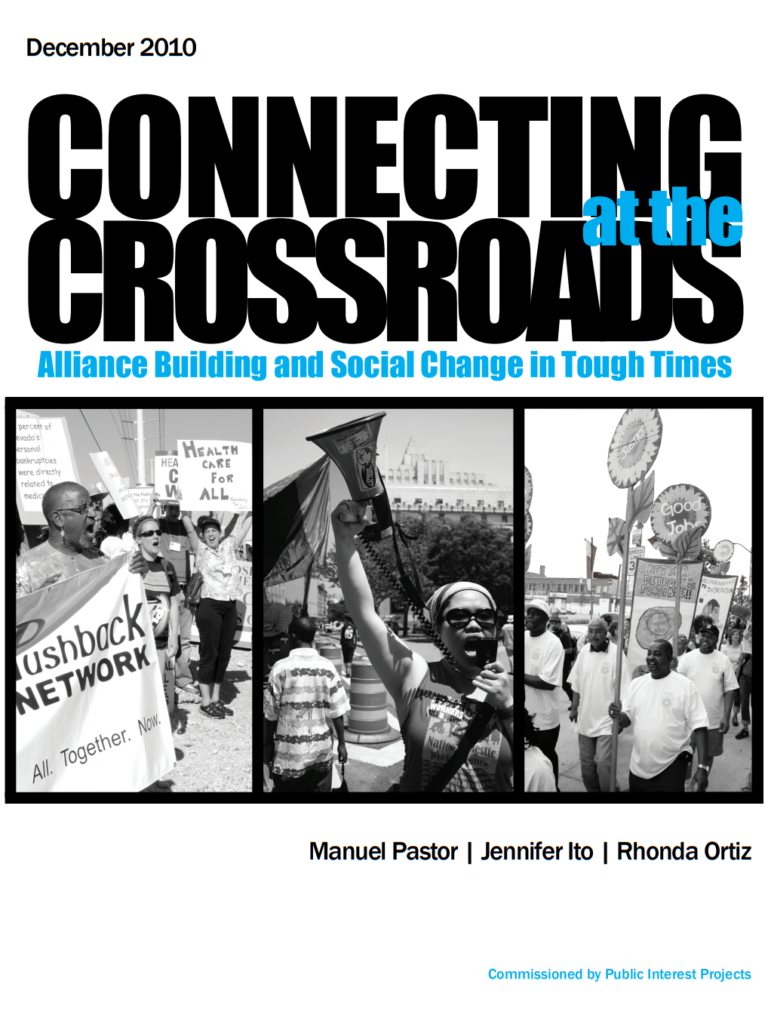
December 2010
By Manuel Pastor, Jennifer Ito, and Rhonda Ortiz Commissioned by Public Interest Projects
Please note: reports dated earlier than June 2020 were published under our previous names: the USC Program for Environmental and Regional Equity (PERE) or the USC Center for the Study of Immigrant Integration (CSII).
America is facing tough times. While Barack Obama’s 2008 presidential election ignited hope for change, the economy remains stagnant and a conservative wave has captured the attention of media and voters. Now more than ever, alliances of progressive grassroots organizations that are deeply rooted, broadly intersectional, and highly effective are critical for building and sustaining a movement for social equity.
With support from Public Interest Projects, Connecting at the Crossroads contributes to understanding the inner workings of such alliances and how to support them. The report focuses on a particular set of alliances: groups of independent base-building organizations that believe in building long-term connections across geographies, constituencies, and issues as a key movement-building strategy. Based on a review of the literature and a scan of the field—including nearly 30 interviews with key leaders and a June 2010 convening of movement organizers—the report aims to narrow the gap between the work of alliances and philanthropic support for their efforts.
Drawing on examples from all over the country, we argue that social justice alliances tend to connect groups, cement relationships, and scale up power and impact. None of this is easy and we present the challenges and tensions of alliance building, including the need to balance campaigns and relationship building, democratic decision making and differential organizational commitments, and high-level policy work and grassroots participation. We also offer specific recommendations for strategic investments in the field, including investing in convenings and leadership development, ramping up groups’ communications capacity to impact the public debate, and supporting the development of new movement metrics.
We close by arguing that we are at a crossroads: what is at stake is not simply a particular policy or political stance but the much bigger issue of how generous, united, and forward-looking we will be as a nation. The alliances we profile will be an important part of overcoming differences and forging connections to secure a more equitable world. They deserve our admiration and our support.



